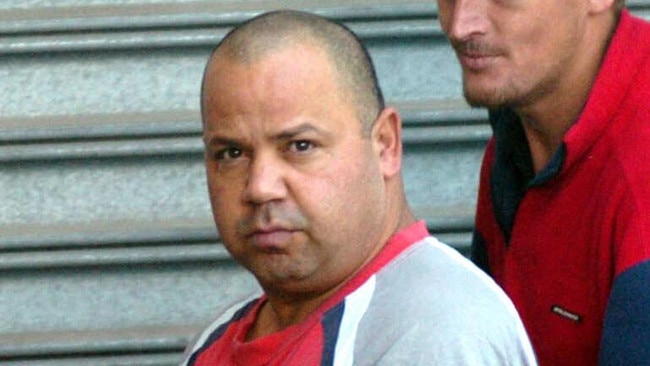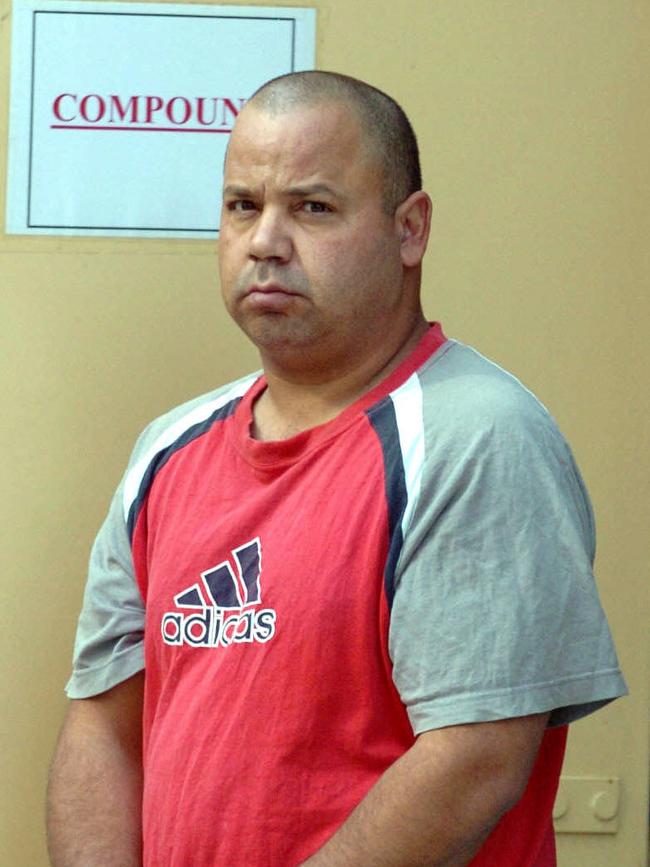Fake taxi driver rapist Andrew Timothy Agius takes Parole Board to the Supreme Court over refusal to release him
A fake taxi driver who was sentenced to 18 years in prison for raping three women is taking the Parole Board to the Supreme Court, arguing he no longer poses a risk to society.

True Crime
Don't miss out on the headlines from True Crime. Followed categories will be added to My News.
A fake taxi driver who was sentenced to 18 years in prison for raping three female passengers is taking the Parole Board to the Supreme Court claiming that he is no longer a high risk of offending.
Andrew Timothy Agius, 50, was returned to prison in 2018 after being released on parole for the first time.
Agius prowled the streets of Adelaide, offering women lifts and posing as a taxi driver between December 2003 and November 2004.
In that time he attacked three women, including one he picked up along popular party strip Hindley Street.
In documents filed with the Supreme Court, the Aboriginal Legal Rights Movement, on behalf of Agius, argued the Parole Board had made jurisdictional errors in their decision to refuse release earlier this year.
Agius refutes the Parole Board’s conclusion that he remains a high risk of offending.
He was released on parole in 2017 but was returned to prison after returning positive drug tests.
At the time he said he was using drugs to self medicate for back pain.
“The Parole Board found that the applicant had not dealt with his drug use, but in so doing failed to address (Agius’) submission … that he did not need to ‘self medicate’ for his back pain once he lost weight after his heart attack,” his lawyers wrote.
The Parole Board recommended that Agius undergo violence, drug and sexual offending courses, but he argued that no classes were available to him for 12 months.

Agius also argued that the Parole Board misinterpreted Judge Wayne Chivell’s initial sentencing remarks when he was jailed in 2017.
Judge Chivell found that Agius had shown a “pattern of entrenched criminality” in his attacks on the three women.
The Parole Board, reflecting on the sentencing remarks, said there were elements of “planning and deliberation” to the attacks.
Agius argues that Judge Chivell had not reached that conclusion.
The Crown Solicitor’s Office, for the Parole Board, maintains that no error was made and even if there was, it was so minor as to not effect the refusal to release Agius.
The case will come before the Supreme Court in the coming months.
Agius’ DNA was found in evidence taken from his three victims, but the taxi driver contested the rape charges, arguing the women had been prostitutes.
Judge Wayne Chivell said Agius’ claims “must have” added to the indignities and trauma experienced by his victim.
Agius was jailed with a non-parole period of 11 years and was released for the first time in September 2017.
The Parole Board revoked his release on October 24, 2018.
The District Court extended his non-parole period by almost a year, making him eligible to reapply for release in late 2019.
He was refused parole again on February 11, 2020.
